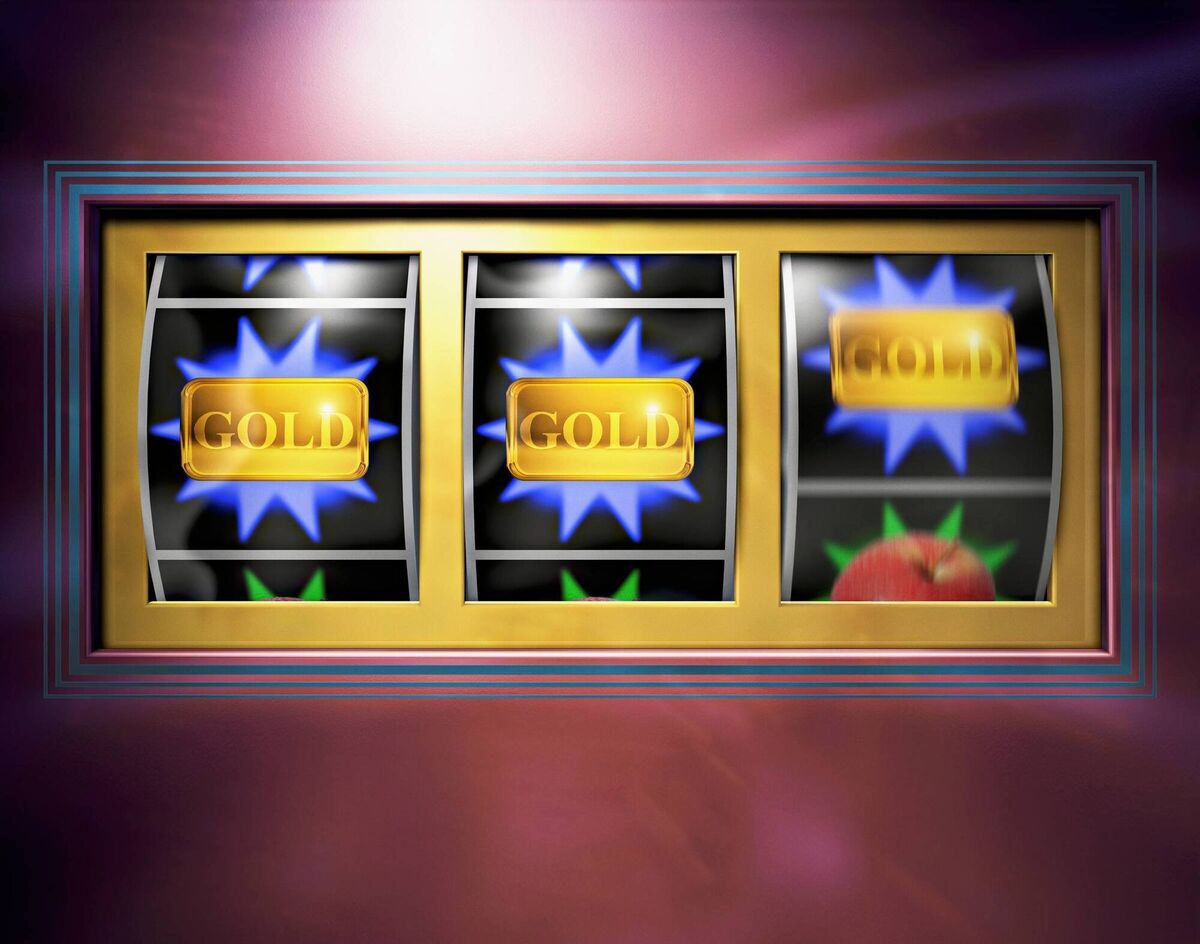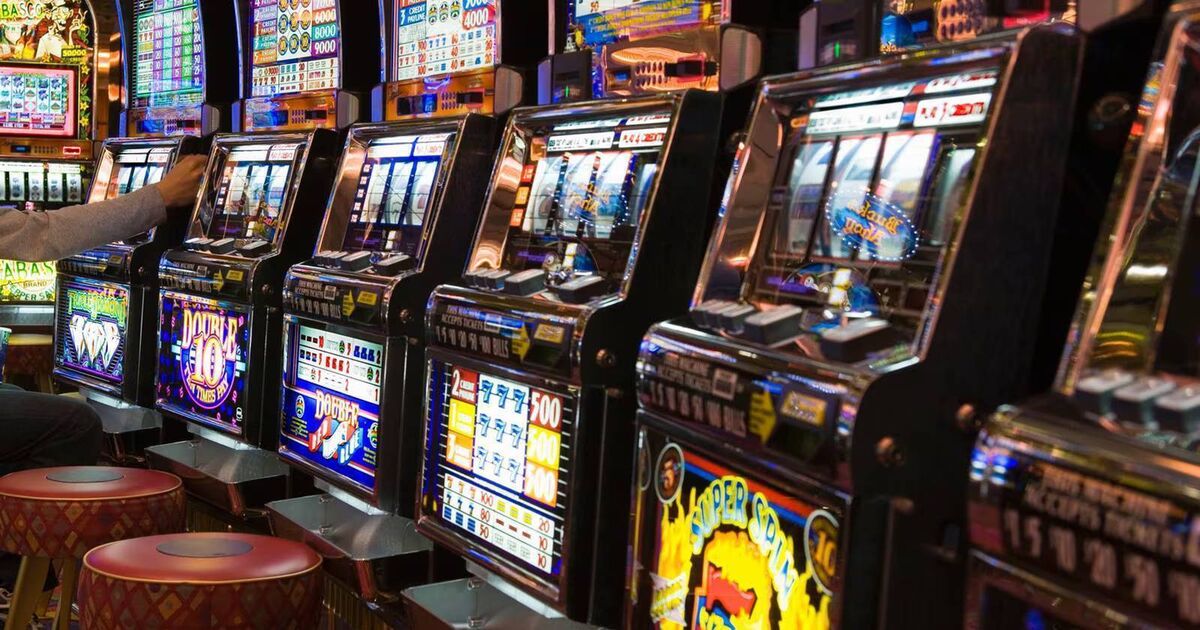The word casino usually evokes images of Las Vegas and a glitz-filled fantasy of Hollywood icons like George Clooney’s Danny Ocean, with Julia Roberts by his side.
It’s bright lights, big cities and iconic gambling palaces like the Bellagio and the MGM Grand.
What it isn’t, however, is Bridewell Street in Mallow.
This is where you will find the Gold Rush Casino,a place that feels far removed from the fantasy its name suggests.
It is located on a narrow bin-lined passage running along the back entrances of restaurants and takeaways in the North Cork town.
Once you leave the wheelchair ramp that leads up to the front door and step inside, you are faced with row upon row of brightly-coloured slot machines on either side of a narrow carpet-lined aisle that leads to toilets.
Nearby, is a space to make yourself a cup of tea, and sitting in a corner, is the casino’s roulette table, which — on the afternoon the Irish Examiner visited — lay silent and empty.
For a room that takes just seconds to cross from one end to the other, it packs in an impressive array of slot machines.
On Thursday afternoon, just two solitary middle-aged women sat perched on comfortable seats one or two slot machine aisles apart from each other.
Both appeared utterly engrossed in their respective games.
Keeping an eye on proceedings was a man in a plastic booth to the right of the front door.
The two women represent the sort of regular clients the family behind Mallow’s Gold Rush Casino and Cork City’s Coalquay Leisure hope will flock to its large gaming arcade planned for Ballincollig.
However, the company’s plans to convert a former fitness centre it owns at No 4 Westside Retail Park in the town into a “gaming/amusement arcade” have been met with considerable opposition locally.
More than 50 people wrote to Cork City Council objecting to the proposal, and some 2,000 people signed a petition against the plans, for which Cork City Council refused to grant permission in June.
Objections by local residents are based around the planned casino’s proximity to residential areas of Baker Street, Castlepark and Beech Park, and the fact that it would — as one objector told the council — be “alarmingly close” to two primary schools.
Objectors also pointed out there were already several gambling facilities in Ballincollig, and introducing another large-scale gambling venue could impact the “community character”.
Most of the objections also said the proposal “conflicts with the Cork City Development Plan’s goals of sustainable urban growth and maintaining a family-friendly environment”.
Residents also said they believe the casino would not only lead to noise pollution and traffic but more worryingly “a rise in antisocial behaviour within our town centre”.
Almost all the objectors also point out that with about 130,000 Irish people “struggling with problem gambling”, the casino could “worsen these challenges” and affect not only gamblers but also “their families and the broader community”.
However, despite the groundswell of opposition by residents and the council, An Coimisiún Pleanála granted permission to Coalquay Leisure on appeal last month.
In making its decision, the planning appeals body said the new venue would be “a permissible form of commercial leisure development at an appropriate location” and “would not seriously injure the residential or visual amenities of property in the vicinity”.
It concluded the new venue would also “be in accordance with the proper planning and sustainable development of the area”.
 ‘If somebody is addicted, and those slots are by far the most addictive gambling product that’s available out there, they will stay on them for as long as possible.’
‘If somebody is addicted, and those slots are by far the most addictive gambling product that’s available out there, they will stay on them for as long as possible.’
So what happens now? A judicial review is the only legal route left open to objectors, but taking a High Court action is prohibitively expensive.
Sinn Féin Cork City South West councillor Joe Lynch said objectors were hoping the company would rethink its plans, in light of all the opposition.
In September, another company — Leeside Leisure Centre Ltd — withdrew its application for a gaming arcade in Bandon despite getting approval from Cork County Council.
That decision followed strong local opposition, which included a petition against it signed by more than 1,300 people.
Mr Lynch said: “I think people are hoping that they can appeal to the company’s better judgement.
There was considerable opposition to plans for an arcade in Bandon and although they got planning there, they didn’t go ahead with the plans.
He told the Irish Examiner: “I don’t think anybody has a major issue with developments like the one planned for Ballincollig being opened in city centres, where there is a night-time economy to potentially support this type of use.
“But, in an area like Ballincollig, which is largely an urban village, it is certainly entirely inappropriate.
The Irish Examiner asked Coalquay Leisure for a comment, but it declined.
The company previously said, however, there had not been any incidents of anti-social behaviour at its establishments.
While bidding in February 2020 to open a gambling arcade in Tralee, company boss Seamus Murphy said: “Every year, we have to go to court and stand before a judge to get a new licence for every venue.
“That speaks for itself.
“All our clients are over 21 and we don’t cater for teens.
“90% of all gambling is done online and on phones.
“Just 1% is done through gaming arcades.”
He also asked: “Would people be objecting if someone was opening a new bookies?”
The company was unsuccessful then and in another application to open in the Kerry town earlier this year.
Indeed, the company has often had to appeal planning refusals in order to expand its operations.
In March 2008, some two years after it formed, Coalquay Leisure applied to Waterford Council for a change of use from retail to a “gaming arcade” at 16 Merchants Quay, Waterford.
The application was refused in May that year, but the Murphys successfully appealed the decision to the then An Bord Pleanála.
In granting permission, the board said the development would “not seriously injure the character or amenities of the area” or give rise to “an excessive concentration of similar uses in the area”.
The venue remains in operation as one of the company’s current arcades, open from 9am until 3am under the Gold Rush Casino brand, and is one of two in the county — the other being in Tramore.
Another venue that had an uncertain planning start is Coalquay’s Ennis branch on Curtin’s Lane.
Initially applied for in October 2020, the proposal to turn a private member’s club into a “gaming/amusement arcade” was deemed invalid the following December. It has since received planning and is on the company’s growing list of venues around Ireland.
Tipperary is next on the list but the firm’s bid earlier this year for planning permission to turn 90 Silver Street property in Nenagh into a “gaming centre” was opposed by local residents.
One said they feared the new venue would contribute to a “loss of community cohesion and diversity” while another declared: “We do not need another gambling hall”.
They also claimed that, if the application was approved, “women and children will suffer”, and added: “Gambling is not a business. It is a [disease] and you [the planners] hold the cure”.
The company is also waiting to see how it fares with An Coimisiún Pleanála after appealing Wexford County Council’s decision to reject its application in July to turn a derelict building at 98 North Main Street into an “amusement and entertainment centre”.
From its inception in 2006, Coalquay Leisure has grown into a company that had — in its latest accounts — net assets of €15.5m derived from its 15 venues around Ireland, at least nine of which are registered as trading under the name Goldrush.
The Murphy family’s portfolio of gambling venues includes five — soon to be six — in Cork City and county, two in counties Dublin, Carlow and Waterford, and one in counties Kildare, Wexford, Mayo and Donegal.
But while owning and running several casinos, gaming rooms and bingo halls is their main money spinner, the Murphy family also make millions from providing emergency accommodation.
Dromboy Limited, which provides the accommodation, had net assets of €9.2m, according to its latest accounts.
It is understood to have worked with the Department of Integration since April 2022, providing accommodation for — among others — Ukrainian refugees.
While it could well argue the fact its gambling business is its most profitable shows there is a demand for its casinos and arcades, the growth of such business in Ireland is a big concern to gambling charities.
Addiction councillor Barry Grant, a project manager with the Extern problem gambling charity, estimates at least 50% of the people who visit gambling arcades are problem gamblers.
The problem gamblers, he deals with, will spend whatever money they have — be it wages, or dole money or their regular pension payments — in a single sitting.
While the lowest stake could be 10c per spin, the highest is €10. But with just 2.5 seconds between each spin — also known as the “game cycle speed” — a lot of money can be spent in a very short space of time.
“The goal for those on slot machines is to stay on them for as long as possible,” Mr Grant said.
In any place that has slot machines, there’s very few people who play them recreationally, have a few spins and go home.
He also said women were more likely to spend their time at slot machines than men because, for the most part, they are more likely to be involved in what is known as “escape” gambling.
Men, on the other hand, tend to prefer so-called “action” gambling, which is mostly sports betting and an “emotional roller coaster ride of highs and lows”.
“Slot machines are the perfect sort of escape gambling,” Mr Grant said. “You don’t have that emotional roller coaster ride with slot machines.
“Instead it’s just quite hypnotic and people talk about ‘getting into the zone’, and it’s where they do not want to be disturbed and it’s where they hope to stay for hours on end.
“If somebody is addicted, and those slots are by far the most addictive gambling product that’s available out there, they will stay on them for as long as possible.
“I’ve seen datasets where people were even playing for 48 hours straight on online slots.
“Now you couldn’t do that in a casino in Ireland because none of them were open 24 hours yet. People would do it in Vegas.”
He explained why some gambling addicts stay on a slot machine for so long online.
“There’s stories of people who are not incontinent, wearing incontinence nappies so that they don’t have to go to the toilet and break out of the zone,” he said.
“That is how addicted people can become — to spend so long in front of a slot machine that they have to wear a nappy.
“There is a reason why slot machines have a reputation of being the crack cocaine of the gambling world.”

